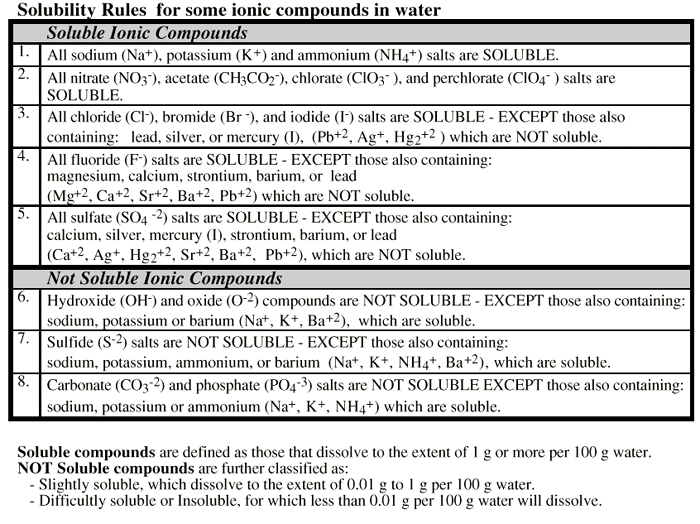What is the molecular and net ionic equation for the reaction between aqueous "Pb(NO"_3)_2" and hydrochloric acid?
1 Answer
Balanced Molecular Equation:
Net Ionic Equation:
Explanation:
The reaction between lead(II) nitrate and hydrochloric acid is a double replacement reaction, also called a double displacement reaction. In a double replacement reaction, the cations and anions of the reactants switch places to form new compounds.
The general equation is AB + CD
One of the products of a double replacement reaction must be water, an insoluble gas that bubbles out of solution, or an insoluble precipitate (solid). If none of these occurs, then the reaction does not take place.
The possible products of the reaction between lead(II) nitrate and hydrochloric acid are lead(II) chloride,
To determine whether a product is insoluble, you need to consult a solubility table like the one below:
 www.chem.umass.edu
www.chem.umass.edu
As you can see, lead(II) chloride is insoluble, and is therefore a precipitate that, which means the double replacement reaction does occur. The balanced molecular equation is written below:
The net ionic equation includes only those ions that reacted to form the precipitate.
Another way to indicate that a product is a precipitate is to write a down arrow after its formula, such as

